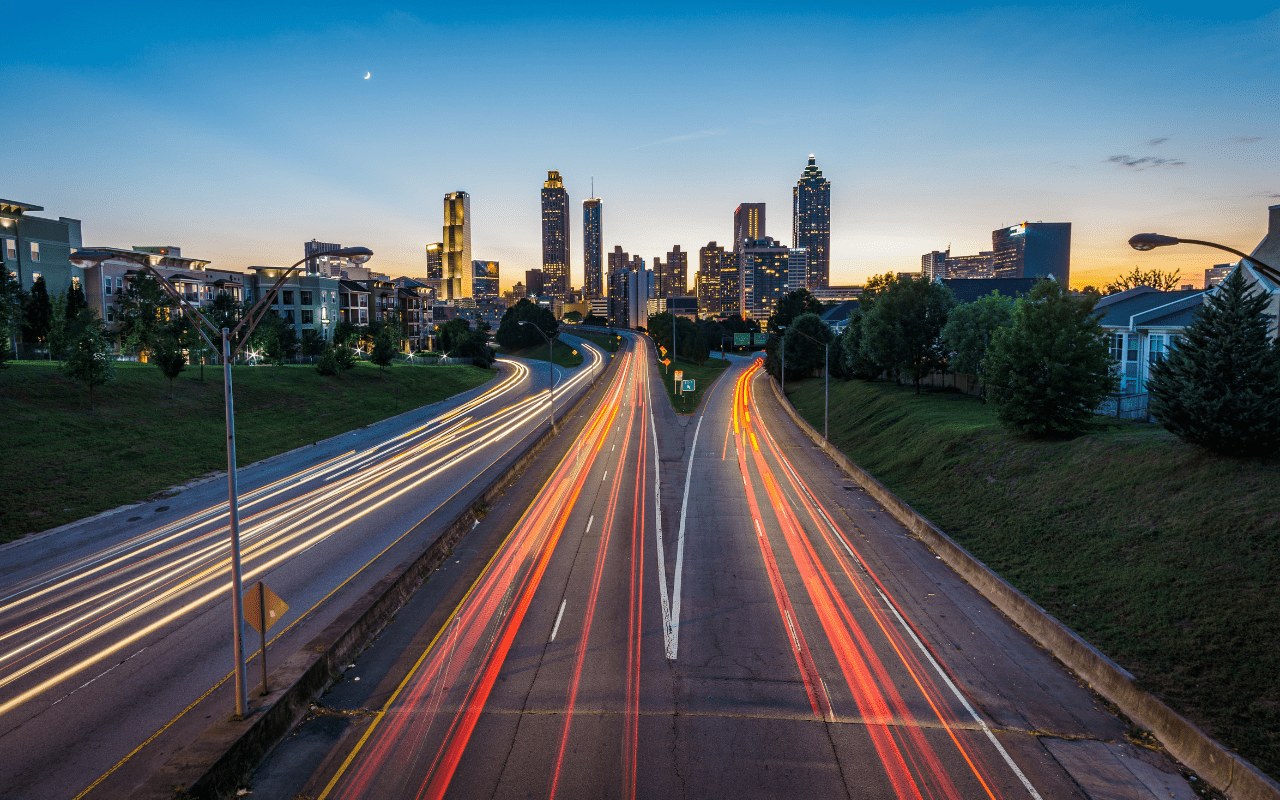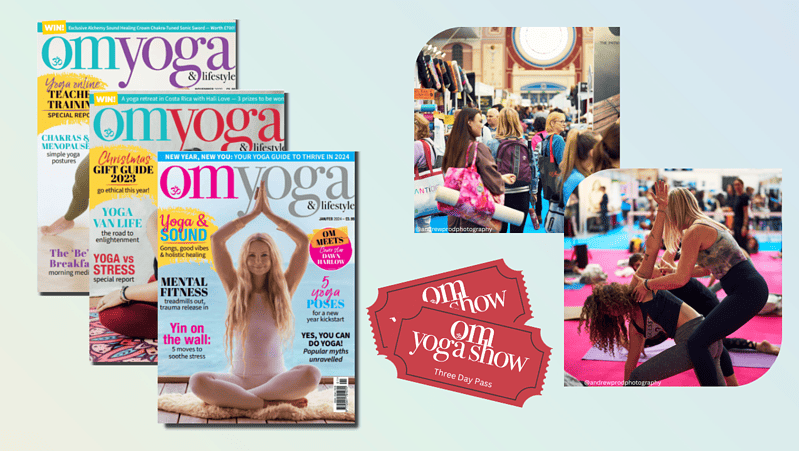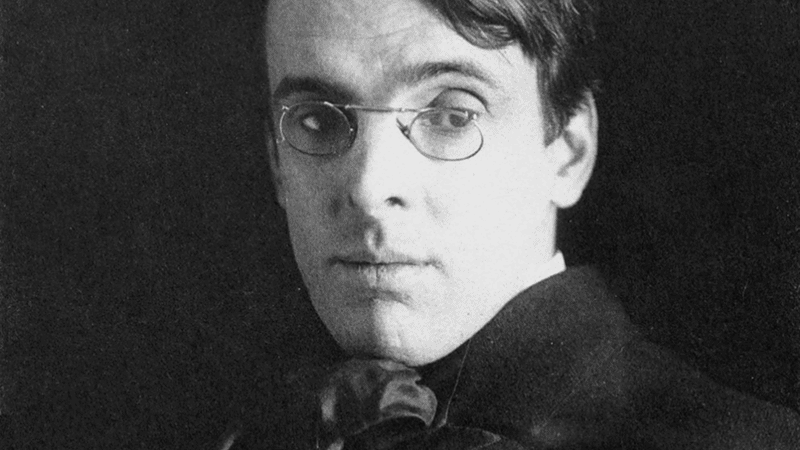
Life is a highway
Put these four keys in your ignition. By Andrea Marcum
I live in California, so I spend a lot of time on the freeway. You might think that’s the last place I’d practice yoga, but I’ve found that the moment I put my key in the ignition (I know, we push a button now) I unlock all sorts of places where I’m tightly wound.
Hold on, I’m not giving you a series of postures to do as you whizz down the autobahn. I’m talking about yoga philosophy, specifically the Four Locks and Four Keys found in Patanjali’s Yoga Sutra. These locks and keys are our way towards friendliness, compassion, delight, and equanimity. Not exactly things you’d expect to find as you merge onto the exigency of a raceway. Right?
Let me explain… Though I live in LA, my mother who has Parkinson’s disease lives up north in Santa Cruz and my scrappy rat terrier Tippi and I have been driving seven hours up the coast to spend time close to her. On the way back from our most recent visit, we stopped for fuel in a sleepy seaside city called Valencia, which is about an hour north of Santa Barbara.
As we got back on the motorway, we were reminded that not all freeway merger lanes are created equal when it comes to how much road you have before you must choose to converge, or careen off the road altogether whilst picking up the velocity required to join the pace and find your place. There’s a bit of a Hail Mary (or should I say Dear Durga) as you bite the bullet and go for it.
Evidently, my entry cut things close with the car behind me despite my best intentions. Taking it personally, the driver gunned around me nearly clipping my front end, then began punching his brakes and flipping me the bird. It was so aggressive Tippi toppled from the backseat to the front. We were shaken.
I noted his fancy sliver Porsche Spyder as he continued to wave his middle finger while erratically braking and speeding. Then I noticed his customised license plate that read MANSOME. Like handsome with a manly M.

Now, I try not to make assumptions about people, but his actions and license plate made it hard for me not to jump to the conclusion that perhaps self-importance eclipsed MANSOME’s compassion. And if he was trying to make me feel bad, it worked. I ugly-cried all the way to Santa Barbara, envious of all the happy, smiling, beach-going cars around me.
What MANSOME didn’t know was that I was driving away from a mother whose Parkinson’s dementia had become so amplified that I too found compassion challenging sometimes (as hard as that is to admit for fear of judgement). Not only that, but I was driving to my apartment that after 16-years of marriage, would no longer have a husband in it. He’d left me just weeks before. I hadn’t seen it coming.
Where’s the friendliness, compassion, delight, and equanimity you ask?
It can be clumsy getting onto a freeway, just as it can feel clumsy trying to move on with our lives as mercurial challenges swerve fitfully into our lane. But we don’t want to meet ire with ire. As Roman emperor and Stoic philosopher Marcus Aurelius said, “The best revenge is not to be like your enemy.”
It’s here that I hand you the keys.
In his translation of Sutra 1.33, Reverend Jaganath explains that we become calm, clear, and bright when we abide in the virtues of friendliness (maitri), compassion (karuna), delight (mudita), and non-judgment (upeksha) in conditions, of happiness, distress, virtue, and absence of virtue.
The first of our Four Keys, maîtri, connotes friendliness towards those who are happy. For example, I could have used this key to find joy instead of sinking into self-pity, glancing through my tears at the smiling beachgoers on the highway. Why not let the Zeitgeist of jovial sunny days fill me with a glow of abundant potential instead of allowing my envy to feed my woe?
The second, karuna, is compassion for those who are suffering. Maybe MANSOME feels cut off in other areas of his life. Perhaps he feels unseen despite how hard he’s trying with his souped-up car and flashy license plate. Can’t we all empathise with that? Fundamentally, we want acknowledgement and appreciation. This key is one I wear around my neck like the call button my mother wears at her assisted living facility. I move it close to my heart when I feel myself becoming abrupt or overwhelmed.
Mudita is celebrating delight instead of feeling threat when it comes to those who seem to be farther down the path than we are. Like maitri, it’s the ability to feel inspired by those who rise to the occasion – the people who seem to be more patient with their moms or successful in their marriages. Mudita is exhilaration for what is possible instead of proprietary scorekeeping.

Upeksha is often described as equanimity, but 'non-judgmental' helps me to further refine its meaning. In the same breath that he told me he wanted a divorce, my soon-to-be-ex-husband told me he wanted a Porsche. MANSOME in his silver Spyder was made-to-order – sent from on high to ensure I was really, truly using this key – not succumbing to my own inner MANSOME temptation to veer onto snarky #midlifecrisis offramps.
All of us are wonderfully imperfect, and every single one of us is going through something. We don’t, as Marcus Aurelius said, want to become our enemy – and often we are our own worst enemy. There’s a little bit of MANSOME in all of us. When I told this story as a theme for one of my online classes, I got an explosion of emails from people who felt the same. “Now I know what to name it,” one of them said.
Life is a highway where we merge and exit, and where friendliness, compassion, delight, and non-judgment are key. TKV Desikachar said, “If we can be pleased with others who are happier than ourselves, compassionate toward those who are unhappy, joyful with those doing praiseworthy things, and remain undisturbed by the errors of others, our mind will be very tranquil.”
As we share the road together on our journeys, let’s wave each other in at our own pace to find our place in the inevitable traffic of life. Amidst the twists and turns, we’ll try to replace our MANSOME impulse to flip the bird with space where maitri, karuna, mudita and epeksha are heard.
And when the road gets bumpy, when it’s challenging to get all four keys into our ignition, we’ll remind one another, “Don’t get discouraged, it’s often the last key of the bunch that opens the lock.”







